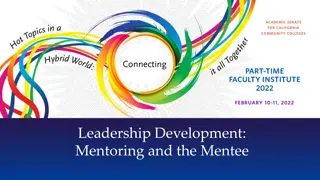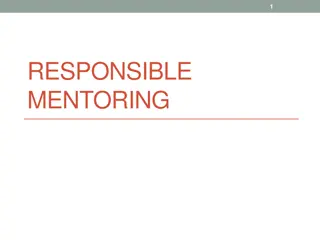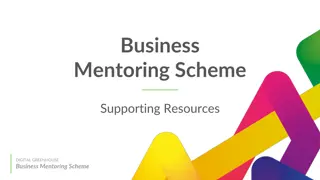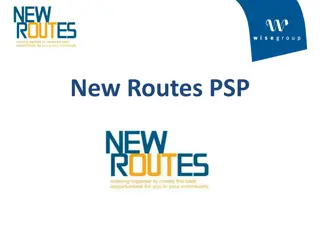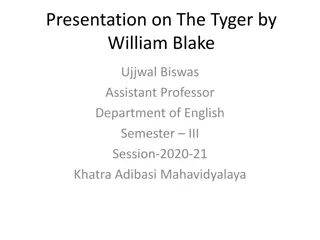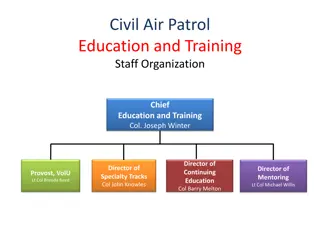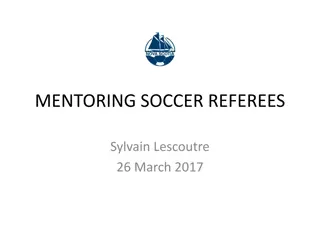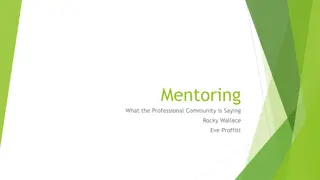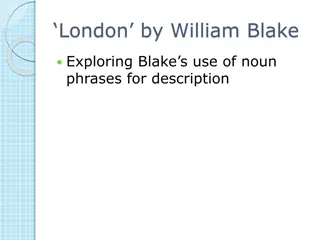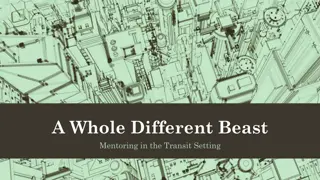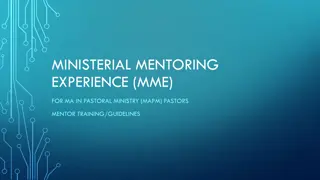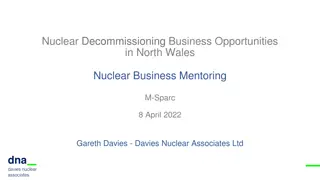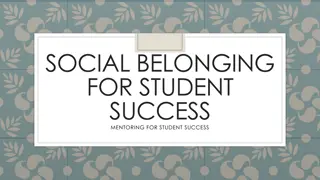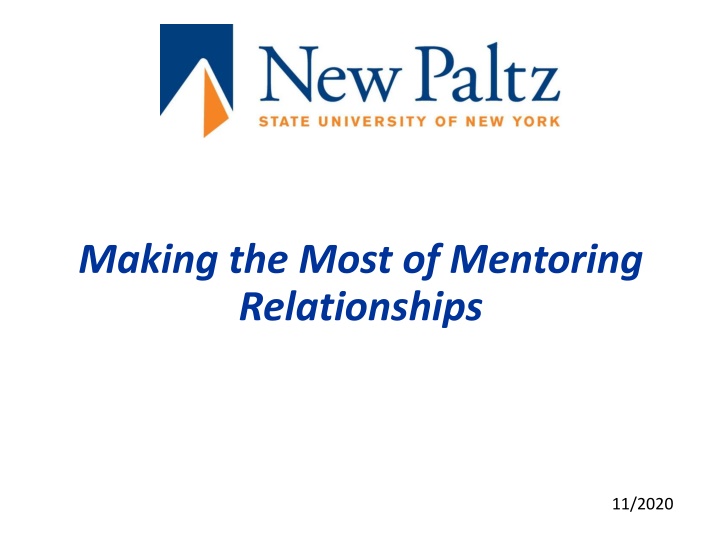
Maximizing Mentoring Relationships for Accelerated Learning
Explore the benefits of mentoring relationships in accelerating learning and integrating into a professional culture. Understand the importance of clarity, boundaries, and intentional construction in successful mentorships. Dive into guided reflections on expertise, boundaries, program goals, and more for effective mentoring frameworks.
Download Presentation

Please find below an Image/Link to download the presentation.
The content on the website is provided AS IS for your information and personal use only. It may not be sold, licensed, or shared on other websites without obtaining consent from the author. If you encounter any issues during the download, it is possible that the publisher has removed the file from their server.
You are allowed to download the files provided on this website for personal or commercial use, subject to the condition that they are used lawfully. All files are the property of their respective owners.
The content on the website is provided AS IS for your information and personal use only. It may not be sold, licensed, or shared on other websites without obtaining consent from the author.
E N D
Presentation Transcript
Making the Most of Mentoring Relationships 11/2020
Ground Rules As you entered today your mic was muted. Please keep your microphone muted throughout the session to minimize distractions. Please use the chat box function to share your thoughts, suggestions and questions!
Introductions Name Title Best thing you learned or gained from a mentor or A mentoring challenge you would like support with
Why Mentoring? A lot of individuals and organizations turn to mentoring as a relationship-based way to accelerate learning and integration into a culture or practical framework. This approach is grounded in: Learning is a social activity That group norms are codified more through normalized behavior than formal rules Diversifying communication styles Creating a safe and consistent feedback loop for checking understanding
Relationship Work Mentoring is a structured and unique kind of professional relationship. As with all relationships, the dynamics are co- negotiated by both the mentor and the mentee. Clarity around aspirations, practices, an boundaries are essential for successful mentorships. Some happen organically, but most need to be intentionally constructed and maintained.
Creating A Mentoring Framework Over the next several slides I am going to walk you through a guided reflection that will hopefully inform our conversation about mentoring best practices. Self-Reflection Program Reflection (Articulated expectations) Mentee needs Creating Clarity Momentum and Motivation
Self-Reflection What is the expertise (practical, cultural, relationship) that you bring to your mentoring relationship? What boundaries do you feel are necessary to maintain a professional relationship you are comfortable with? Communication modes Network engagement Topics and information that is off the table Frequency of connction
Program Goals What are the stated objectives or goals of the mentoring program? How much structure does the program provide and how much is the mentor expected to build on their own? (format, degree of support for scaffolding the mentorship relationship) Are relationships fixed or can relationships be formed based on connection or need?
Mentee Wants and Needs The goal of mentoring programs and relationships is frequently positioned in terms of institutional needs or outcomes. However, the most effective mentoring relationships are focused and driven by the needs and goals of the mentee. What does your mentee want to accomplish? What kind of communication are they most comfortable with? How frequently do they want to be in contact? What do they want to be able to count on you for?
Creating Clarity Mentoring Mission Statement Consider creating a personal mentoring mission statement that reflects the purpose of the mentoring relationship as articulated by the mentee and contextualized by your mentorship boundaries. Your mission statement should highlight areas of support or expertise you are willing to assist with. Create a plan for how frequently you will connect and for how long. Schedule outreach or meetings in advance so everyone is on the same page and the mentoring feels like a true commitment for everyone. Have a plan for how unexpected events or needs should be handled. Set a review and reflect date for an open and planned conversation for if both parties want to continue to connect. Tip: Frequently people will say tell mentees to just reach out if you have any questions . However, the ambiguity of this leads people to just not reach out.
Momentum & Motivation The best way to create and maintain momentum within a mentoring relationship is for that relationship to: Show up for the person, not just the problem or process Ask people how they are Ask if the relationship is working for them What is one thing that we could be doing differently that would make this more effective for you? Be consistent (make small commitments and deliver in a big way) Acknowledge and praise moments where you see engagement you value or aligns with your shared expectations.
Things to Consider Please be mindful about the wide spectrum of styles that are at play (communication, growth orientation, openness to change, social affinity, learning style) with all relationships. Professional contexts don t simplify this complexity. Follow the needs of the mentee and push yourself to explore the work through their lenses (within your boundaries). Engagement or lack there of is feedback that needs to be reflected on. Keep in mind that mentorships are not just about your knowledge, but your network of relationships and the knowledge they can bring as well.


